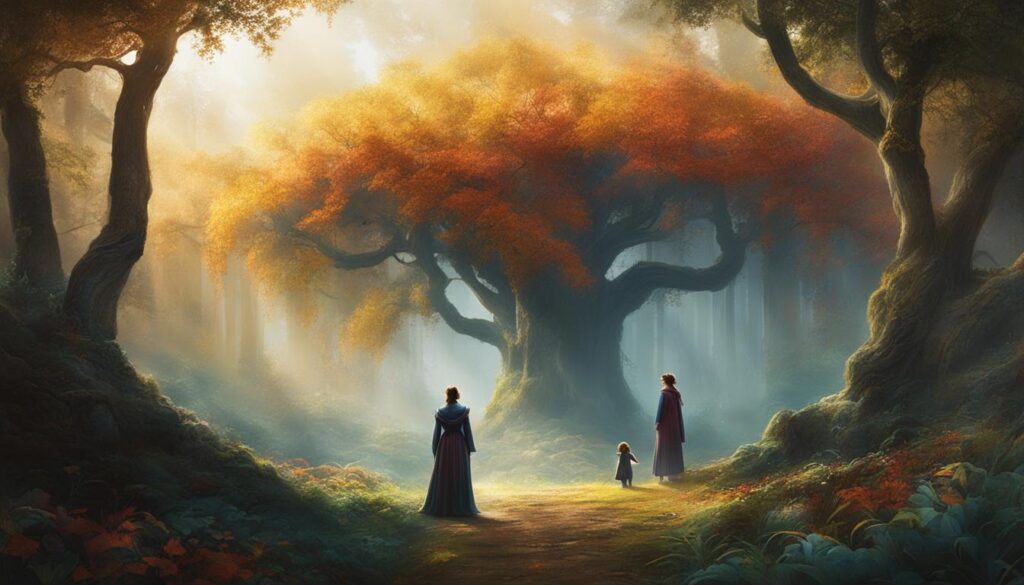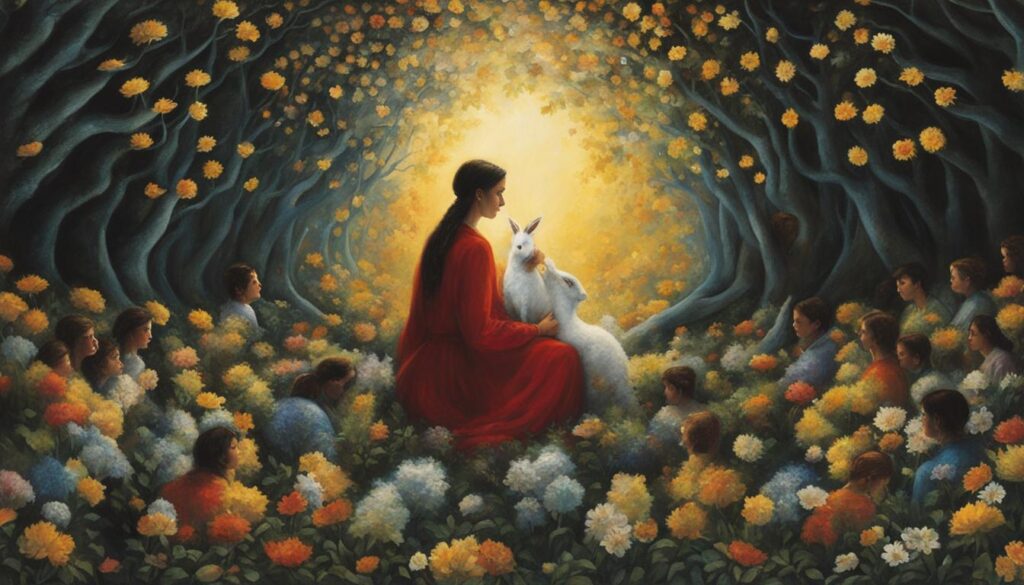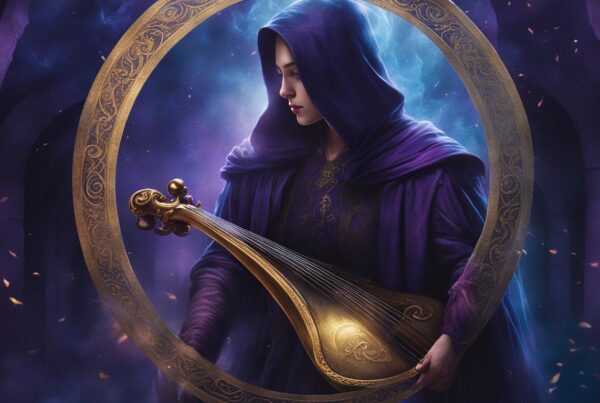Dive into the profound world of literary fiction with the “The Gathering” audiobook, an exceptional work by Anne Enright, renowned for its intricate exploration of family and memory. Awarded the Booker Prize in 2007, this audiobook offers listeners an immersive journey through Enright’s masterful storytelling. As we evaluate the merits of this audiobook listening experience, delve into what makes it a poignant rendition of the original novel.
Anne Enright’s reputation as a titan of contemporary literature precedes her, and rightly so. Her ability to weave complex emotions with striking prose is illuminated further in the “The Gathering” audiobook format. This review aims to provide listeners with comprehensive insights into why this Booker Prize winner translates so powerfully from page to spoken word, and why it should find a place in the library of serious collectors of literary fiction.
Introduction to Anne Enright’s “The Gathering”
Anne Enright, a preeminent voice in contemporary Irish literature, eloquently captures the complexities of familial bonds and personal identity in her novels. Among her acclaimed works, “The Gathering” stands as a masterpiece, intricately weaving the subtleties of human emotions against a backdrop of Ireland’s rich cultural tapestry. This novel not only offers a profound overview of the Hegarty family’s intergenerational saga but also serves as a touchstone for Booker Prize-winning fiction.
Published in 2007, “The Gathering” garnered immediate attention, securing Anne Enright’s standing as a significant figure in the literary world. The novel’s exploration of memory, mourning, and redemption brought forth a narrative that resonated with readers and critics alike, culminating in the coveted Booker Prize. This recognition not only celebrated the artistry present within the pages of “The Gathering” but also emphasized the global relevance of Anne Enright novels.
With piercing insight, Anne Enright presents a vivid tableau of a family’s shared history, as seen through the eyes of the narrator, Veronica Hegarty. It is a tale marked by the ebb and flow of time, interlacing past and present to challenge the very notion of truth.
The novel functions on multiple levels, deftly intertwining personal loss with a broader commentary on the state of contemporary Ireland. To further provide context to this seminal work, let us examine some key aspects of the novel’s publication, its premise, and its critical acclaim.
| Aspect | Detail |
|---|---|
| Publication Year | 2007 |
| Genre | Literary Fiction, Irish Literature |
| Awards | Booker Prize (2007) |
| Themes | Family, Memory, Grief, Identity, Irish History |
| Narrative Style | First-person; Multi-temporal Layers |
| Significance | Represents a pivotal contribution to contemporary Irish literature and the broader landscape of literary fiction |
In sum, Anne Enright’s “The Gathering” is a profound narrative that merges personal storylines with a sweeping sociocultural vision, illustrating the enduring power of literary fiction to speak to universal experiences. This Booker Prize-winning novel is not only a cornerstone of Enright’s authorial legacy but equally a beacon within the genre of contemporary Irish literature.
The Plot of “The Gathering”: A Sibling’s Journey
At the heart of Anne Enright’s “The Gathering” lies a profound exploration of the Hegarty family’s intricate web of relationships and emotions. The novel, steeped in the tradition of family drama in literature, unfurls through the memories of its central character, Veronica Hegarty, who grapples with the death of her brother, Liam. In the wake of tragedy, the narrative weaves a rich tapestry of personal history and familial bonds, showcasing the powerful role of storytelling through memory in shaping our understanding of the past and present.
Exploring the Hegarty Family Drama
As readers, we are drawn into the tangled skein of the Hegarty family’s past and present. Through Enright’s deft storytelling, the novel examines the complexities of sibling relationships, parental influence, and the secrets that reverberate through generations. The grief representation in novels like “The Gathering” often acts as a catalyst for characters to confront longstanding issues, and Enright utilizes this motif to unravel the family’s narrative, exposing the layers of joy, sorrow, and resentment that have shaped their collective identity.
The Power of Memory and Grief
Enright’s novel distinctively captures the ephemerality of memory and its profound impact on personal identity and grief processing. Veronica’s journey is a poignant representation of how the mind oscillates between the past and present, piecing together fragments of recollections to make sense of loss. The Hegarty family’s experiences illuminate the universal human condition of seeking solace in memories, of trying to hold onto pieces of what was, and of ultimately learning to navigate the tempestuous seas of bereavement and acceptance.
Amidst the swirling emotions and revelatory moments within “The Gathering,” readers encounter a stirring narrative that is as much about the individual struggle as it is about the collective human experience – a resonant chord struck across the expansive literature of family and loss.
Anne Enright’s Writing Style in “The Gathering”
Delving into Anne Enright’s The Gathering reveals a tapestry woven with an elaborate style that harmonizes the lyrical narrative fiction and potent historical context prevalent in contemporary literature. Enright channels a distinct voice that is both raw and eloquent, drawing readers into the intimate folds of the Hegarty family’s saga.
The Lyrical Prose of Enright
Enright’s prose pulsates with a rhythmic quality that echoes the cadence of poetry. The author’s approach to storytelling in The Gathering is a testament to her ability to infuse a narrative with emotional depth through her writing style. The musicality ingrained in her language resonates deeply with readers, creating a mesmerizing ebb and flow that complements the fluctuating dynamics within the story.
Depicting Ireland’s Historical Context
Interlacing character-driven tales with Ireland’s historical context, Enright breathes life into the settings of her stories. The backdrop of Irish history is not simply there for atmospheric effect; it also acts as a silent character, shaping the lives and experiences of the protagonists. In her evocative portrayals, Enright manages to encapsulate the essence of a nation’s journey, mirroring the complex heritage of Ireland’s past and present.
Considering the impact of Anne Enright’s writing style in the wider context of literature, we observe the following nuanced elements that characterize her narrative approach:
| Element | Description | Significance |
|---|---|---|
| Lyrical Language | Profoundly poetic use of language that flows with a unique rhythm. | Enhances the emotive experience and paints a vivid picture for the reader. |
| Emotive Depth | Deeply felt emotions conveyed through introspective and expressive storytelling. | Drives the narrative and connects readers on a personal level. |
| Historical Integration | The skilful weaving of individual stories with Ireland’s historical events. | Adds a layer of authenticity and enriches the narrative landscape. |
The lasting impression of Anne Enright’s writing style is one of a profound understanding of the human condition, set against the ever-present backdrop of Ireland’s historical tapestry. Her mastery in crafting a lyrical narrative fiction, coupled with an acute awareness of historical context in contemporary literature, solidifies her standing as an influential voice in the literary world.
Characters and Development in “The Gathering”
In Anne Enright’s “The Gathering”, the reader is presented with a masterclass in character development in fiction. The story’s heart lies in the intricacies of the protagonist’s journey and the tangle of family relationships in novels. The Hegarty family becomes a vessel through which we explore deep, universal emotions and character dynamics.
Protagonist Veronica Hegarty’s Inner Turmoil
Veronica Hegarty, the narrative’s central figure, is depicted as a character of profound complexity. Encapsulating the protagonist’s journey, Veronica’s inner world is fraught with conflicting emotions toward her past and present. As readers, we witness her inner turmoil endlessly intertwined with the familial bonds that both sustain and suffocate her.
Interactions Among the Hegarty Siblings
The Hegarty siblings are sculpted with equal attentiveness, their interactions illuminating the subtle yet powerful forces of kinship. Through their diverging lives and converging stories, Enright articulates the essence of family relationships in novels, revealing how shared blood can bind or repel individuals to and from one another.
| Character | Role in Narrative | Impact on Protagonist |
|---|---|---|
| Veronica Hegarty | Protagonist; bearer of family history | Embodies the complexities of grappling with personal loss and collective memory |
| Liam Hegarty | Deceased brother whose death instigates the story | Serves as the catalyst for Veronica’s exploration into the past |
| Ada Merriman | Ancestor whose life resonates through generations | Affects Veronica’s understanding of heredity and identity |
| Mother Hegarty | The matriarch symbolizing family endurance | Presents a standard of motherhood and the pressures thereof on Veronica |

Critical Reception of “The Gathering”
The release of Anne Enright’s “The Gathering” sparked a flurry of critical discourse and reader reactions, making it one of the most talked-about entries in the realm of contemporary literary fiction. Achieving both critical acclaim and robust sales, the novel’s exploration of complex familial themes resonated profoundly with its audience. Earning book awards such as the esteemed Booker Prize underscored the novel’s literary achievements and cemented Enright’s prestige in the literary world.
A cascade of critical analysis followed the novel’s rise to prominence. Critics praised Enright’s lyrical prose and the deftness with which she handled the darkly nuanced themes of memory and identity. The following table encapsulates the accolades received by “The Gathering,” providing a snapshot of its celebrated status in literary circles.
| Award/Accolade | Year | Category |
|---|---|---|
| Booker Prize | 2007 | Winner |
| Irish Novel of the Year | 2008 | Winner |
| Hughes & Hughes Irish Novel of the Year | 2007 | Shortlist |
| Irish Book Awards | 2007 | Novel of the Year |
Readers, too, were drawn into the haunting narrative of “The Gathering,” often expressing their insights and emotional connections through various platforms. The overwhelming reader response mirrored the critical sentiment, highlighting the book’s powerful pull on the psyche and its potential for sparking intense discussion and reflection.
Enright’s masterpiece captures the very essence of modern Irish literature, while simultaneously elevating universal questions of existence and belonging. – Literary Journal
This balance between scholarly praise and public appreciation has etched “The Gathering” into the canon of must-read contemporary literature, framing it as a benchmark for future literary endeavors.
Themes and Motifs: Understanding “The Gathering”
In Anne Enright’s novel, “The Gathering,” we are plunged into a world that is rich with intertwining themes of family sagas and existential motifs. These themes hold a mirror to the quintessence of contemporary literature. They not only challenge the personal psyche but also delve into the broader human experience with profound depth and sensitivity.
Confronting Personal and Collective Traumas
The narrative artfully exposes the psychological scars of personal traumas, where each character’s history is meticulously unraveled. This exploration is significant in contemporary literature, often reflecting societal changes and the inherent complexities within family dynamics.
The Hegarty clan’s intergenerational trauma manifests in diverse ways, illustrating how collective suffering can shape, and sometimes distort, personal identities. The novel is fearless in its portrayal of such sensitive material, positioning Enright as a deft storyteller in the realm of family sagas.
Death, Loss, and the Search for Meaning
Deeper existential themes resonate throughout the novel as characters grapple with the immutable concepts of death and loss. Enright weaves a reflective thread through these experiences, beckoning readers to join in the search for meaning amidst the chaos of life’s most jarring transitions.
This motif aligns with the broader narrative arc famously found in existential themes in fiction where the protagonists, and through them the readers, ponder over the fundamental questions concerning human existence. “The Gathering” effectively captures this universal quest through the microcosm of the Hegarty family’s saga.
The emotional and philosophical weight carried by these themes propels “The Gathering” into a poignant space within contemporary literature. The novel’s intricate portrayal of the nuanced struggles for comprehension and closure amidst life’s unpredictable tides ensures its place in the catalog of significant literary works.
The Influence of Irish Culture in “The Gathering”
Anne Enright’s poignantly crafted novel, “The Gathering,” does not merely unfold a family’s story, but it is also deeply rooted in the very fabric of Irish identity. The narrative acts as a conduit, presenting a potent testament to Irish cultural influence, particularly through the lens of family and tradition. This literary piece not only draws on the rich tapestry of Ireland’s past but also subtly reflects on the ripple effects of Ireland’s economic history, detailing a transformative era.
The Importance of Family and Tradition
Enright meticulously infuses “The Gathering” with the essence of Irish traditions, where family is not just a concept but the cornerstone of existence. The protagonists within these pages live and breathe through family legacies, underscoring the quintessential Irish cultural influence on family traditions in literature. The novel becomes a mirror reflecting how these traditions are preserved, challenged, and sometimes reshaped in the face of modernity.
Mirroring Ireland’s Economic and Social Shifts
The Hegarty clan’s narrative is a microcosm of Ireland itself, charting the undercurrents of social and economic changes sweeping the country. Enright delivers a masterful portrayal of how these shifts impacted Irish lives and livelihoods, integrating Ireland’s economic history into the characters’ personal transformations. Her work artfully navigates the dichotomy between the old and the new, the rural and the urban – painting a vivid scene of a nation in the throes of evolution.
“The Gathering” and its Standing in Modern Literature
The landscape of modern literature is graced with numerous works that resonate with readers and critics alike, shaping the continuum of storytelling that bridges generations. Anne Enright’s novel “The Gathering” stands prominently in this literary timeline, having been recognized as a Booker Prize winner and a significant contribution to the narrative exploration of family, memory, and personal identity. This visceral tale has left an indelible mark on fiction’s impact on contemporary culture.

Since its publication, “The Gathering” has garnered critical acclaim for its eloquent prose and unflinching emotional depth, prompting discussions about what constitutes modern literary classics. The novel’s potent depiction of human experiences resonates with a broad readership, reflecting the power fiction holds in understanding and sharing complex emotions and relationships.
| Criteria | “The Gathering” Analysis |
|---|---|
| Booker Prize Status | Winner, attesting to its artistic merit and contribution to literature |
| Themes | Explores universal themes of grief, family, and identity |
| Narrative Style | Lyrical and poignant prose that captures the intricacies of human emotions |
| Cultural Resonance | Reverberates with readers worldwide for its authentic portrayal of Irish family dynamics and individual psyche |
| Reader Engagement | Invokes introspection and discussion, cementing its status in book clubs and literary forums |
| Longevity Potential | Potential to be read and appreciated in future literary contexts |
With storytelling that traverses the private landscapes of its characters, “The Gathering” showcases Enright’s ability to reflect the nuance of human relations and the passage of time. The hallmark of a classic is often its ability to remain relevant and emotionally potent across ages, and in this regard, Enright’s work is increasingly referred to alongside other modern literary classics.
In an era where literature contends with vast forms of media and entertainment, the enduring conversations around this novel testify to both its immediate and sustained fiction’s impact on society. Indeed, the fact that “The Gathering” continues to be a touchstone for both literary scholars and readers alike suggests its emergence as a fixture in the canon of modern classics.
Audiobook Review: “The Gathering” by Anne Enright
The medium of audiobooks presents a unique interpretation of literary works, and Anne Enright’s “The Gathering” is no exception. The audiobook adaptation of this Booker Prize-winning novel offers listeners an intimate and vivid experience that hinges greatly on the audiobook’s performance review. The transition from the page to the spoken word brings forth new dimensions and considerations for the audience, balancing the beauty of Enright’s prose with the practicalities of audiobook narration quality.
Narration and Performance
A pivotal component in this audio journey is the narration. In this audiobook performance review, it is evident that the narrator’s task is not merely to read, but to interpret, embody, and convey the emotional gravity that Enright infuses in her text. The narration quality is central to conveying the characters’ depth, layers of the narrative landscape, and the overall pacing necessary to engross the listener fully into the fabric of the story being told.
Adapting Literary Nuance to Audio
Audio adaptations of novels carry the responsibility of translating literary nuance into a wholly auditory experience. It goes beyond merely voicing characters to capturing the rhythm, tone, and subtleties of the language. With “The Gathering,” particular attention is paid to the transition of these elements, providing a litmus test for how well nuanced literary works survive the adaptation process and how audiobook narration quality can either make or break an audiobook’s overall impact.
Comparing “The Gathering” to Enright’s Other Works
Anne Enright’s literary journey through the landscapes of Irish life is marked by her unique ability to capture the complexity of family dynamics. “The Gathering” and her other works, “The Pleasure of Eliza Lynch” and “The Green Road,” stand as testaments to her formidable skill in weaving intricate tales. Although each novel offers distinct storylines and emotional textures, a comparative analysis highlights Enright’s literary range, as she tackles Irish family narratives with acuity and compassion, making each one a valuable piece for comparisons in fiction.
The Pleasure of Eliza Lynch
While “The Pleasure of Eliza Lynch” carries readers into the extravagant and turbulent existence of a 19th-century Irish courtesan, it explores similar themes of identity and belonging that are omnipresent in “The Gathering.” Enright’s portrayal of Eliza’s journey, much like Veronica Hegarty’s, delves into the depths of personal narratives that are infinitely shaped by the historical and familial contexts surrounding the characters.
The Green Road: A Different Family Saga
Comparatively, “The Green Road” presents yet another variant of the Irish family narrative, extending its gaze to the global stage with the roaming of the Madigan siblings. Differences aside, both novels display Enright’s consistent attention to the emotional geography of family life, with “The Green Road” paralleling the dark undercurrents of affection and resentment found in “The Gathering.”
| Title | Main Theme | Family Dynamics | Narrative Structure |
|---|---|---|---|
| The Gathering | Grief and memory | Complex, dark family secrets | Non-linear, introspective |
| The Pleasure of Eliza Lynch | Identity and history | Individual-focused, historically influenced | Linear, rich in historical detail |
| The Green Road | Emigration and displacement | Scattered family, global impact | Fragmented, global perspective |
Enright’s literary range allows her to navigate through varying emotional landscapes, each time anchoring her narrative in the rich soil of Irish history and society. Through these comparative lenses, “The Gathering” stands out as a beacon within Enright’s body of work, illuminating the intricate patterns that shape Irish family narratives across the bounds of time and place.
Reader’s Experience: Navigating Themes of “The Gathering”
Delving into Anne Enright’s “The Gathering,” readers embark on a journey that not only tells a story but also invites an active engagement with its themes. This engagement is deeply rooted in what is known as reader response theory, a perspective in literary criticism that highlights the role of the reader in creating the meaning of a text. When readers encounter the rich, complex layers of “The Gathering,” their personal interpretations become a significant part of the reading experience itself.
The intricate exploration of human conditions like grief and memory in the novel allows for a wide spectrum of literary interpretation. Readers find themselves reflecting on their own experiences as they connect with the narrative, thereby engaging with fiction in a very personal way. This process not only brings the text to life but also fosters a unique bond between the reader and the story.
Through “The Gathering,” we not only read Veronica’s story, we feel it, question it, and internalize it, making it a part of our own narrative of understanding.
Each reader navigates the somber and emotional passages of “The Gathering” differently, crafting a personalized mosaic of meaning from the narrative presented. As readers parse through the layers of Veronica Hegarty’s journey, they reflect upon the thematic resonance of the text, ranging from the influence of familial bonds to the echoes of historical contexts in contemporary life. Here, the novel transcends being just a printed work, becoming an avenue for exploration and self-discovery for its audience.
- How memory and history shape our identity
- The role of family narratives in personal development
- The collective search for meaning in the face of loss
Ultimately, engaging with “The Gathering” is tantamount to engaging with oneself. Through the intimate act of reading, we come to understand more deeply the variables of reader response theory, the textures of engaging with fiction, and the nuances of literary interpretation. In this way, “The Gathering” stands not just as a textual artifact, but as a catalyst for personal introspection and intellectual discourse.
Conclusion
In revisiting the layered complexities and emotional depth of “The Gathering” by Anne Enright, our literary review reaches its terminus, synthesizing the varied nuances that make this novel an exquisite piece of literature. We’ve explored the multifaceted characters, the intricate plot weaved through memory and grief, the lyrical beauty of Enright’s prose, and the painstakingly crafted themes that resonate with such force in Ireland’s historical backdrop. The novel’s translation into an audiobook adds an additional rich layer, affording the narrative a new dimension through its auditory rendition.
Summarizing a literary review of this caliber requires acknowledging the duality of the written and spoken word — where each mode of storytelling offers distinct insights and evokes varied responses. “The Gathering” stands out not only for its Booker Prize acclaim but for its enduring literary qualities that continue to captivate readers and listeners alike. While the book is not without its critiques, it stands as a testament to the enduring power of family sagas and the search for personal truth within the tapestry of shared history.
For final thoughts, Anne Enright’s novel remains a profound book recommendation for those who seek to dive into the depths of literary fiction that delves into the essence of human experience. The review reflects on the impact of Enright’s contribution to both the Irish and global literary landscapes, affirming her status as a storyteller of extraordinary talent. For anyone yearning to be swept away by a story that is at once intimate and expansive, “The Gathering,” in either book or audiobook format, is a compelling journey worth undertaking.



